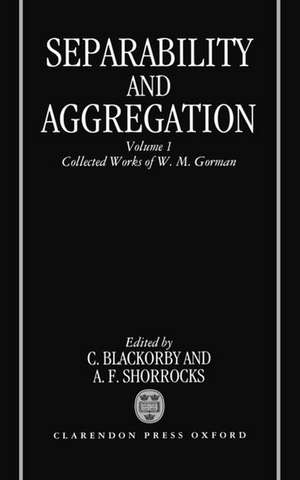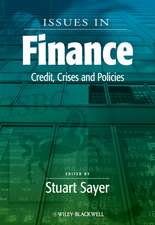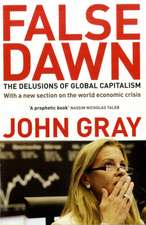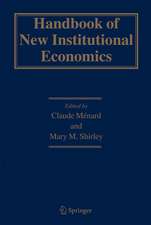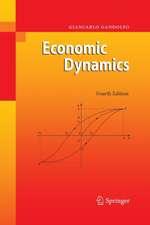Separability and Aggregation: The Collected Works of W. M. Gorman, Volume I
Autor W. M. Gorman Editat de C. Blackorby, A. F. Shorrocksen Limba Engleză Hardback – 4 ian 1996
Preț: 679.35 lei
Preț vechi: 1022.19 lei
-34% Nou
Puncte Express: 1019
Preț estimativ în valută:
130.01€ • 134.31$ • 108.20£
130.01€ • 134.31$ • 108.20£
Carte tipărită la comandă
Livrare economică 14-20 martie
Preluare comenzi: 021 569.72.76
Specificații
ISBN-13: 9780198285212
ISBN-10: 0198285213
Pagini: 504
Ilustrații: line figures
Dimensiuni: 163 x 242 x 33 mm
Greutate: 0.96 kg
Editura: OUP OXFORD
Colecția OUP Oxford
Locul publicării:Oxford, United Kingdom
ISBN-10: 0198285213
Pagini: 504
Ilustrații: line figures
Dimensiuni: 163 x 242 x 33 mm
Greutate: 0.96 kg
Editura: OUP OXFORD
Colecția OUP Oxford
Locul publicării:Oxford, United Kingdom
Recenzii
Twenty-six papers, twelve previously published, bring together the author's important work on aggregation across the commodities and agents.
The editors have to be congratulated for having done a superb job in editing the collection which for most papers meant writing a preface on historical, editorial, and substantive significance. Without these prefaces only Gorman himself could find his way around in the myriad of mathematical formulas.
The editors have to be congratulated for having done a superb job in editing the collection which for most papers meant writing a preface on historical, editorial, and substantive significance. Without these prefaces only Gorman himself could find his way around in the myriad of mathematical formulas.
